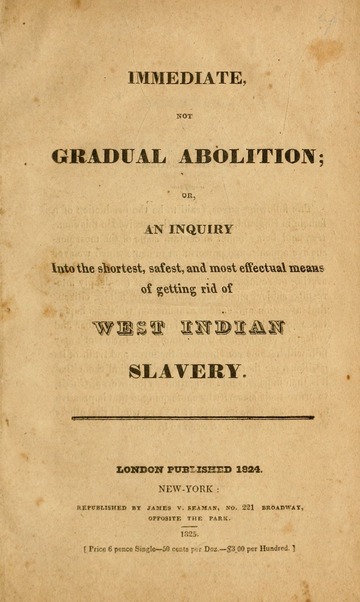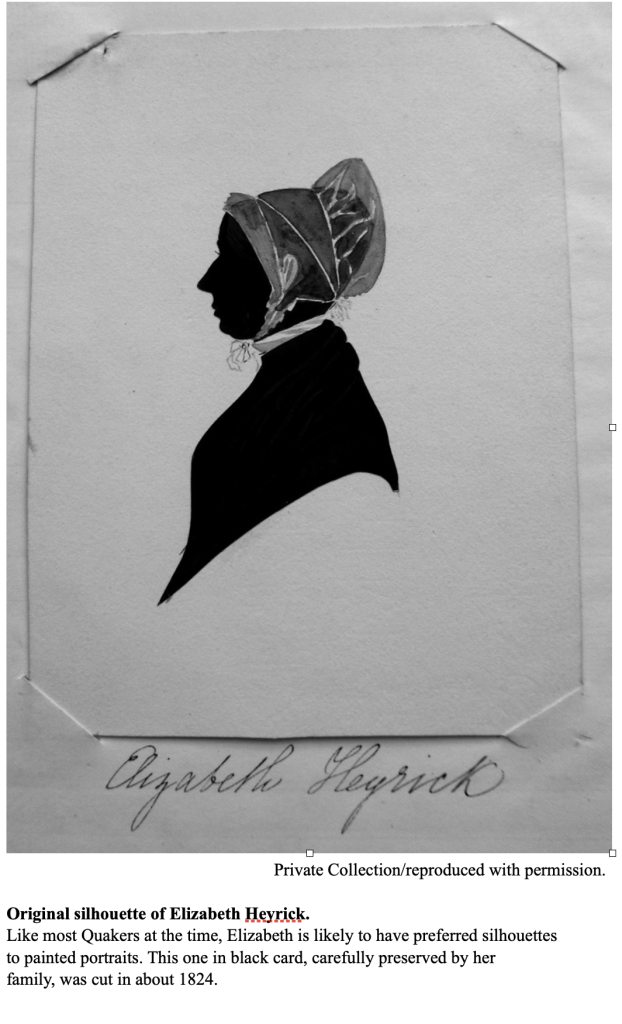Elizabeth Heyrick was a fierce anti- slavery campaigner, who lived in Leicester during the 18th century. This year marks 200 years since her most famous pamphlet ‘Immediate Not Gradual Abolition’ was released into the world.
To celebrate, a detailed biography of her life has been released by London writer Jocelyn Robson – the first book centred on the life of this bold, difficult, but extraordinary woman…

Picture: Jocelyn Robson
Elizabeth Heyrick’s life as a campaigner began following the death of her husband John in 1797. Theirs was a turbulent and tempestuous marriage, which began when Elizabeth was just 19-years-old. The union lasted eight years before John suddenly died of a heart attack – a shock which devastated his wife and sparked a heavy grieving process.
“They had no children and her grieving was quite extreme. On the anniversary of her husband’s death, every year she would just withdraw herself and go into seclusion – dress in black and not eat anything. I think it really was quite a miserable time,” says Jocelyn, author of ‘Elizabeth Heyrick: The Making of an Anti-Slavery Campaigner’.

“It could be the reason she took up activism and began to write such fierce pamphlets. She had all this anger and wanted to do something good…”
Elizabeth’s first pamphlets were centred on ‘Bull baiting’ – a cruel blood sport which horrified her when she witnessed the practice first-hand during a visit to the Derbyshire village of Bonsall.
However, her most famous pamphlet was released in 1824, and centred on the abolition of slavery in the West Indies.
The pamphlet called for ‘immediate – not gradual abolition’ as was the general thinking of the time.

“Many anti-slavery campaigners took the view that to abolish slavery suddenly would be quite harmful. You know, these people have been in darkness all their lives and to suddenly bring them into sunshine would be quite a shock,” Jocelyn explains.
“However Elizabeth’s view was ‘why wait?’ Let’s do it now’”. “She supported complete and immediate emancipation.
“ Her voice and the way she comes across in her writing is very strong – quite strident and feisty. She was a sort of Greta Thunberg of her day – fiercely committed to her causes and heedless about her own safety.“
“She was an all or nothing kind of person and she stepped outside of the conventional mould. She did things that women weren’t supposed to do and I admire that…”
Aiming to promote public awareness of the cruelty of the slave trade and hit the profits of importers of slave-produced goods, Elizabeth encouraged a social movement to boycott sugar from the West Indies. She did this by visiting grocers’ shops in Leicester to persuade them not to stock it.
She distributed her pamphlets across the city, which were quickly picked up by the Leicester Chronicle – the newspaper of the day.
However, Elizabeth saw little success from her efforts, and like many notable people in history, wasn’t revered in her lifetime. Even today, her name is not well known – even here in Leicester.
Jocelyn hopes that her book is able to help change that and that it may even help promote the idea of getting a statue of Elizabeth erected in Leicester.
A small sculpture was presented to Leicester Museum and Art Gallery over the summer and shows Elizabeth breaking the chains of slavery. It’s something that she would certainly have approved, however more needs to be done in Leicester to acknowledge one of its greatest heroines.
Jocelyn’s book is a labour of love, researched meticulously and written over the course of six years.

“I wanted to highlight Elizabeth’s story and for people to appreciate the complexity of women’s lives at that time. I feel that their stories have long been neglected,” she tells Pukaar.
“There are many names that we associate now with abolition, the best known being William Wilberforce, Thomas Clarkson and Granville Sharp, but the names of women are relatively few.
“When it came to writing Elizabeth’s story, there were few surviving letters or diary entries. It is believed that these were all burned by her sister upon her death.
“Elizabeth joined the Leicester Quakers in 1807, which explains why there are no portraits of her – only silhouettes, so it was difficult for me as a writer not to be able to look into her eyes and get a feel for who she really was. From other accounts I believe she was a person who was difficult to be around and she didn’t suffer fools.
“But she is someone who I admire and someone who I would like to have known – an interesting and complex woman who didn’t fit the mould, but a strong force for good and one of history’s most influential social crusaders.”
To get a copy of Jocelyn’s book, visit: https://www.amazon.co.uk/Elizabeth-Heyrick-Making-Anti-Slavery-Campaigner/dp/1399068385
By Louise Steel



